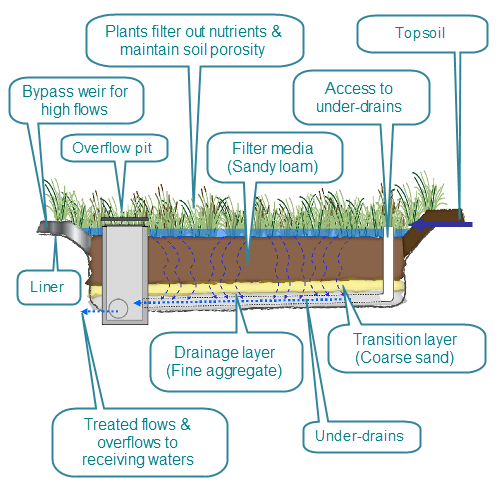Bio-filtration
What is bio-filtration?
Bio-filtration is a new form of treating stormwater for re-use that is being trialled as part of Salisbury's research and development program. It is a process of improving water quality by filtration through biologically influenced media.
How does bio-filtration work?
Stormwater flows over the surface of the bio-filtration cell which is planted with aquatic plants and looks similar to a conventional wetland. The water then percolates vertically through a sandy loam media which acts as a filter, before being collected in a drain at the base of the profile. The bio-filtration cell is then allowed to dry enabling physical and biological processes to work. The cycle is then repeated with stormwater loading.
Why bio-filtration?
Bio-filtration could have significant benefits for stormwater recycling. The area or footprint required for treatment is up to five to 10 times less than traditional artificial wetlands, making this form of treatment attractive where open space available for stormwater recycling is limited.
Cross section of a bio-filtration cell

